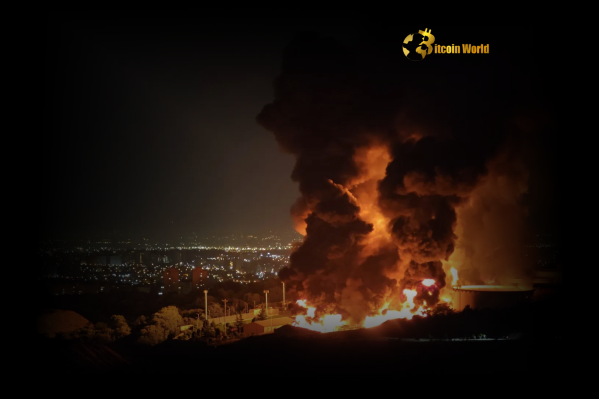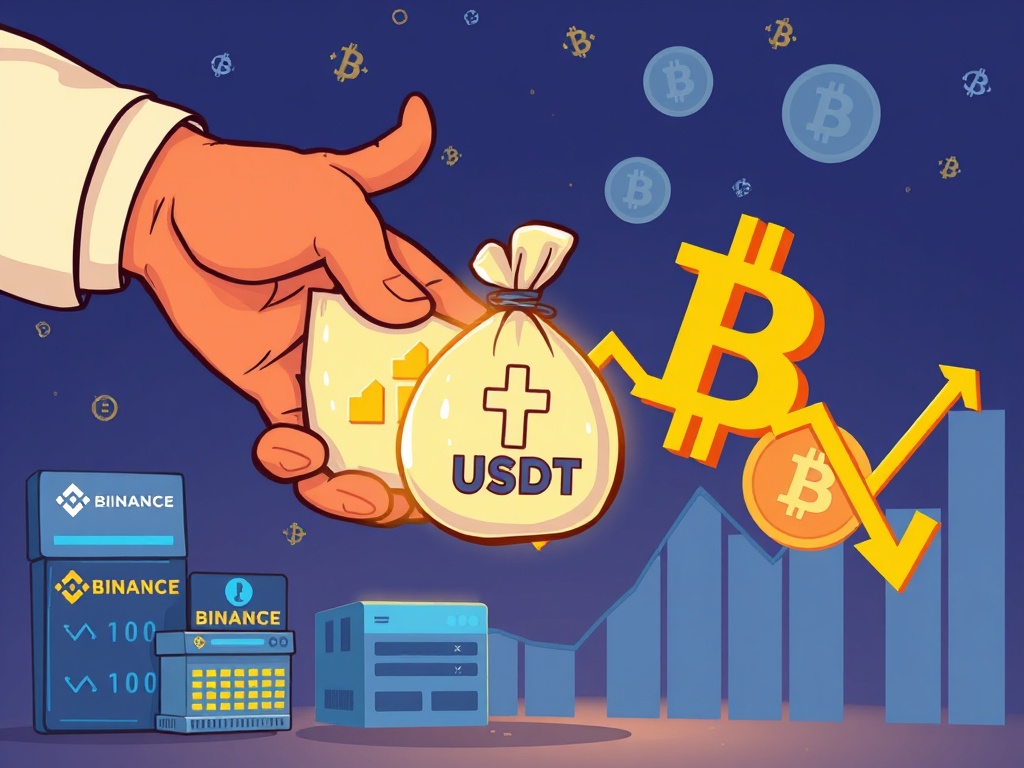BitcoinWorld

Explosive Reports: Israel Targets Khamenei Headquarters in Tehran Amid Rising Middle East Tension
In a development sending ripples across global political and financial circles, including those monitoring cryptocurrency market sensitivity to geopolitical events, reports have emerged suggesting a significant escalation in the long-standing Israel Iran conflict. According to accounts circulating in Israeli media, as cited by JinSe Finance, Israel is reportedly targeting the underground headquarters of Iran’s Supreme Leader Ayatollah Ali Khamenei located in Tehran.
This specific report, if confirmed, marks a potentially drastic shift in the nature of confrontations between the two regional adversaries. While Israel and Iran have engaged in a ‘shadow war’ for years, involving cyberattacks, proxy conflicts, and targeted strikes on military or nuclear facilities, a direct attack on the alleged Khamenei headquarters would represent a major escalation targeting the core of Iran’s leadership.
Understanding the Deep Roots of the Israel Iran Conflict
To grasp the gravity of reports concerning a potential Tehran attack targeting such a high-value location, it’s crucial to understand the historical context of the animosity between Israel and Iran. Their rivalry isn’t new; it’s a complex web of ideological, political, and strategic disagreements that have shaped the Middle East for decades.
- Ideological Divide: Following the 1979 Islamic Revolution, Iran adopted a strongly anti-Israel stance, viewing the country as an illegitimate entity and a tool of Western influence.
- Regional Hegemony: Both nations vie for influence in the Middle East, supporting opposing sides in conflicts across Syria, Lebanon, Yemen, and elsewhere.
- Iran’s Nuclear Program: Israel views Iran’s pursuit of nuclear capabilities as an existential threat, leading to covert operations and diplomatic efforts to hinder the program.
- Military Posturing: Both countries maintain significant military capabilities and have engaged in various forms of indirect confrontation.
This enduring tension means that any report of direct engagement, particularly one targeting leadership infrastructure, immediately heightens concerns about broader regional instability and potential spillover effects.
Why Target Khamenei Headquarters? Potential Implications
The choice of targeting an alleged Khamenei headquarters, especially an underground facility often associated with command and control, suggests a strategic aim beyond typical proxy skirmishes. While details remain scarce and confirmation pending, the implications of such an attack could be profound.
Targeting the perceived nerve center of Iran’s leadership could theoretically aim to:
- Degrade Command and Control: Disrupting the ability of the Supreme Leader and his inner circle to direct military and political operations.
- Send a Strong Deterrent Message: Signalling Israel’s willingness to strike at the highest levels of Iranian power.
- Impact Morale: Undermining confidence within the Iranian leadership and potentially the population.
However, such a high-profile target also comes with immense risks. The potential for a severe Iranian retaliation is significant, raising fears of a wider conflict that could engulf the region. This contributes directly to heightened Middle East tension.
Verifying the Report: Challenges and Considerations
It is crucial to approach reports like this with caution. The initial source cited is Israeli media, relayed by JinSe Finance. Military operations of this sensitivity are often shrouded in secrecy, and immediate, independent verification is difficult. Both sides in the Israel Iran conflict frequently engage in information warfare.
Challenges in verifying the report include:
- Lack of official confirmation from either Israel or Iran.
- Difficulty in obtaining independent visual or satellite confirmation of a strike on an underground facility in a heavily guarded area like Tehran.
- The possibility of the report being a deliberate leak or psychological operation.
Until further credible evidence emerges, the report remains just that – a report based on Israeli media claims. However, the mere circulation of such a report during a period of already elevated geopolitical risk is noteworthy and impactful.
Geopolitical Risk and Market Reactions: What to Watch
Major escalations in the Israel Iran conflict have a history of impacting global markets. While direct effects are often seen in oil prices due to the region’s importance in energy supply, the ripple effects can extend to other assets, including the volatile cryptocurrency market.
Increased geopolitical risk often leads investors towards perceived safe-haven assets, though definitions of ‘safe haven’ can vary and are debated, especially concerning Bitcoin and other cryptocurrencies. Conversely, heightened uncertainty can also trigger risk-off sentiment, leading to sell-offs across various asset classes.
Key indicators to watch in the wake of such reports include:
- Movements in crude oil prices.
- Changes in global stock market indices.
- Reactions in the value of traditional safe havens like gold and government bonds.
- The response of major cryptocurrencies like Bitcoin and Ethereum, observing if they react as risk assets or show any safe-haven characteristics in this specific context.
Analysts will be closely monitoring official statements from involved parties and international bodies, as well as any concrete evidence that emerges regarding the alleged Tehran attack.
Navigating Uncertainty: Actionable Insights for Readers
For those tracking global events and their potential impact, especially on financial markets, the current situation underscores the importance of informed caution. Reports concerning significant developments in the Israel Iran conflict highlight the unpredictable nature of Middle East tension.
Actionable insights include:
- Verify Sources: Do not rely on single sources, especially concerning sensitive military actions. Wait for confirmation from multiple, reputable news organizations or official statements.
- Understand Context: Place the report within the broader history of the Israel-Iran relationship and regional dynamics.
- Assess Risk Exposure: Consider how increased geopolitical risk might affect your investments, including cryptocurrencies, and whether your risk tolerance aligns with the current climate.
- Stay Informed: Follow developments closely, but be wary of sensationalism and unconfirmed reports.
While the report of Israel targeting Khamenei headquarters is alarming, a measured approach to information and market reactions is essential.
Conclusion: Awaiting Confirmation Amid Rising Tensions
The report that Israel is targeting Ayatollah Ali Khamenei’s underground headquarters in Tehran, as cited by Israeli media and JinSe Finance, introduces a worrying dimension to the ongoing Israel Iran conflict. While confirmation of this specific Tehran attack is still needed, the report itself significantly contributes to existing Middle East tension and highlights the ever-present threat of escalating geopolitical risk in the region. The potential implications are vast, from immediate regional instability to broader impacts on global markets. As the situation develops, verifying information and understanding the complex dynamics of this rivalry remain paramount for anyone monitoring global affairs or navigating financial markets.
To learn more about the latest geopolitical risk trends and their potential impact on markets, explore our articles on key developments shaping Middle East tension and Israel Iran conflict.
This post Explosive Reports: Israel Targets Khamenei Headquarters in Tehran Amid Rising Middle East Tension first appeared on BitcoinWorld and is written by Editorial Team





